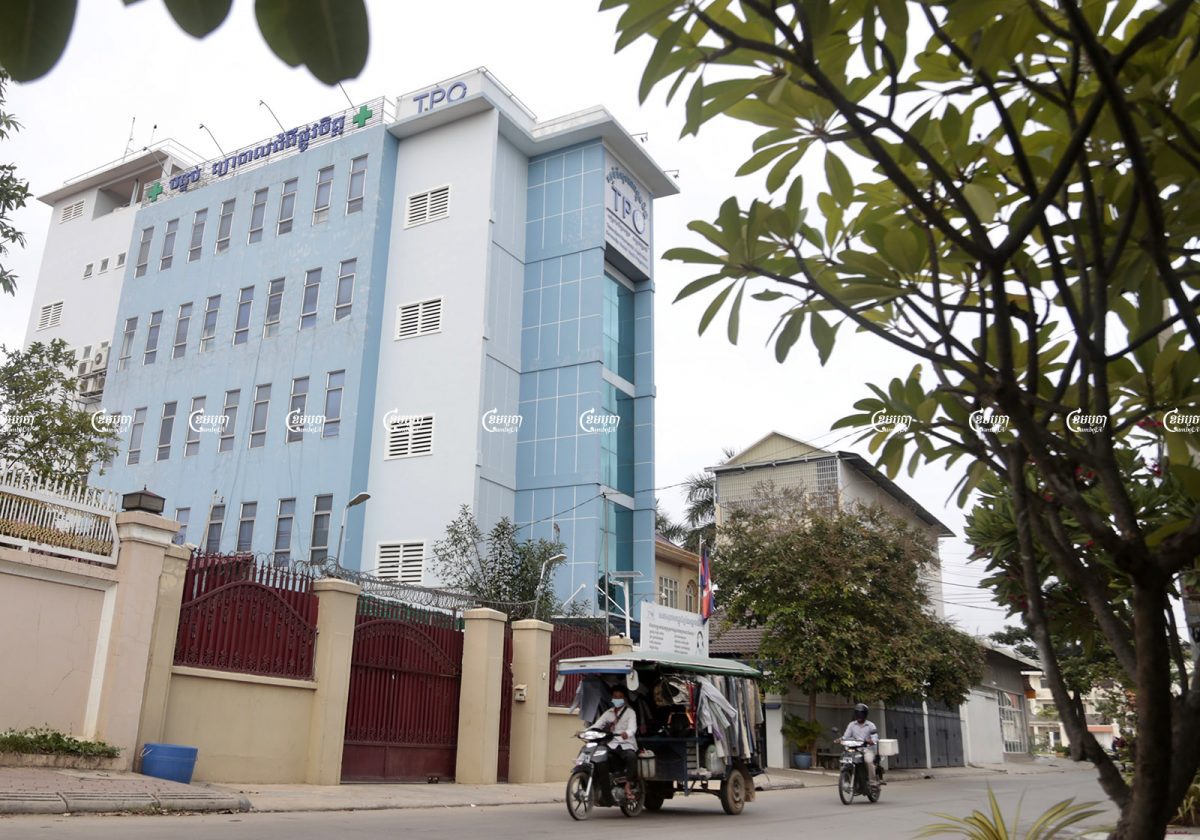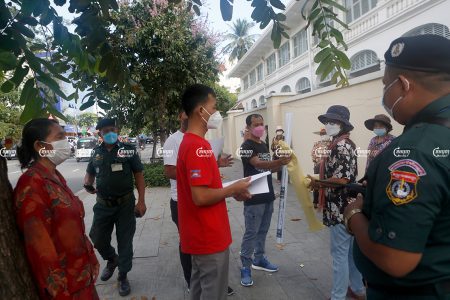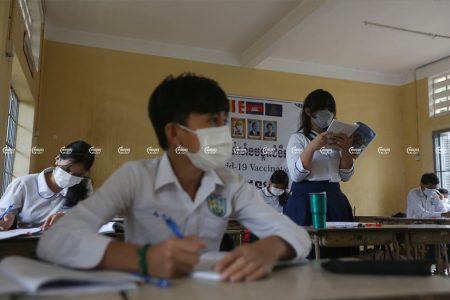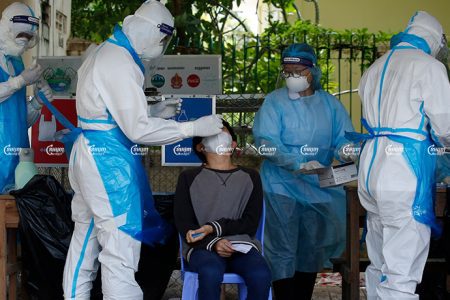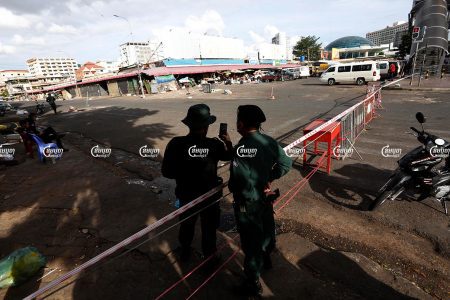More and more Cambodians have been turning to mental health services as a result of the fear and stress caused by the COVID-19 pandemic. Experts say that loss of employment caused by the economic downturn as well as government restrictions and school closures have given rise to increased levels of depression and anxiety.
Twenty-year-old Sokhen is one of the many young Cambodians who have experienced depression during the pandemic. Speaking to CamboJA, he said that in the months following the February 20 COVID-19 outbreak, he no longer felt connected to the outside world, but alone in the darkness of his small, rented room. At first, Sokhen didn’t know where to turn to for help; he didn’t know any mental healthcare providers, and was afraid to share his feelings with his friends and family.
“Hoping to find an appropriate job to support my study and living is what I always wished to do to reduce the burden of my family, which is having severe financial difficulties in the provinces,” he said. “But I could not find any due to the recession caused by COVID-19.”
Not knowing what else to do, he thought of ending his life.
“I felt so bad back then. I could not see anything getting better but seeing myself being a problem for the whole family. So, ending my life possibly could solve the problem and can hold my tears that dropped every single night.”
Although Sokhen has since found work, many Cambodians remain deeply affected by the outbreak. 22-year-old student Vanna was forced to quarantine for 14 days after coming into contact with a positive COVID-19 case. Even after two weeks of isolation, he said, he was still afraid to leave the house for fear of contracting the virus.
“I feel so stressed,” he said. “I stay at home all day long, I’m not able to meet anyone outside often like before. And the fear of COVID-19 is also playing a part in my emotional disruption.”
The global pandemic and resulting government restrictions have had a devastating effect on the mental health of young Cambodians. According to a Unicef report released in October 2020, school closures have kept children and adolescents cut off from their social networks, resulting in trouble sleeping and anxiety exacerbated by irregular eating habits, reduced physical exercise and more and more time in front of screens. Coupled with economic stress and constant fear for their health and the health of those close to them, this stress can lead to long-lasting conditions including post-traumatic stress disorder.
Cambodia recorded 589 new cases of COVID-19 and 11 deaths on Thursday alone, raising the total to 97,524 cases and 2,007 deaths.
Children and adolescents have been particularly hard hit by government measures to stop the virus. Since March 2020, schools have been closed for more than 200 days to slow the spread of COVID-19, impacting more than three million students across the country. Cambodia Association for Counsellors and Psychologists president Hoeur Sethul told CamboJA that the number of clients seeking mental health services has increased three or four times compared to before the pandemic. He said that while the clients come from different ages and backgrounds, the main group coming to him for counselling has been parents bringing their children.
“[Children] aged between two to ten are having a hard time dealing with the unprecedented situation, which could possibly lead to bad academic performance and a change in behaviour,” he said. “Their parents have reached out to me to have parenting consultations in order to have a better understanding of their child’s emotional development. And the number of clients keeps increasing since the start of the pandemic.”
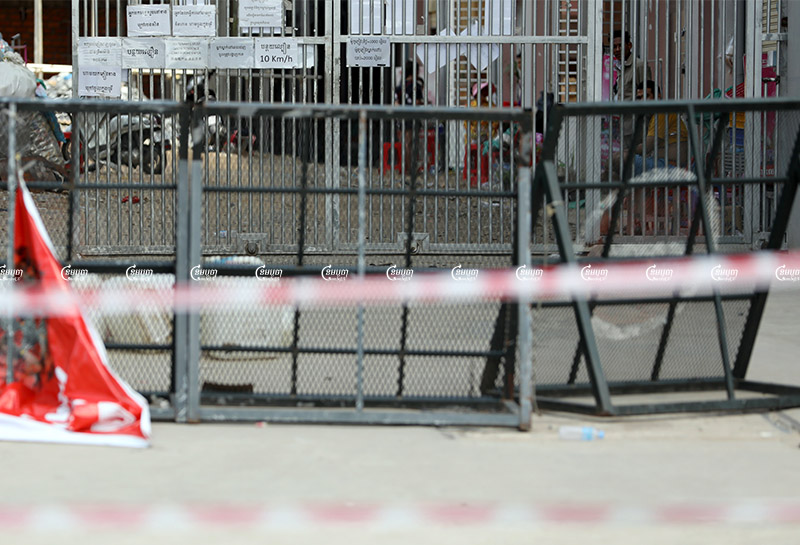
Sethul said based on research conducted by non-government organizations, 70 percent of children are facing mental health challenges due to the long-term school closures and social isolation. On 9 September, the Phnom Penh City Hall announced new 14-day administrative measures starting from 10 September to stop the spread of the new Delta variant. All educational institutions are banned from holding physical classes, forcing them to hold classes online instead — as they have for hundreds of days since the beginning of the pandemic. But according to another Unicef report released in June 2021, online education has been no substitute for in-person learning.
‘’Children who are not in the classroom experience increased loneliness, difficulty concentrating, and high levels of learning anxiety,” the report found. “These problems will only grow worse the longer schools remain closed.”
Sethul said that mental health has become the center of attention during this difficult time. Due to the uncertainty of the situation, widespread fear of COVID-19 and economic shocks, many seem cautious on how to protect their mental health and well-being.
‘’Before the COVID-19 pandemic, I had five training sessions on how to protect mental health and well-being for different private companies and organizations’ staff per month, but now it is up to ten or more,” he said.
Older Cambodians are also increasingly seeking out mental health services. With support provided by Unicef and Plan International Cambodia, the Transcultural Psychosocial Organization (TPO) has offered a wide range of mental health services to different vulnerable populations during the pandemic. TPO mental health consultant Sok Phaneth told CamboJA that from April 2020 to July 2021, 2,470 cases have reached out to TPO asking for mental health support. Among those that reached out, adults appeared to be the leading group at 2,335 cases (1,474 women, 861 men), whereas children made up 135 cases (91 girls, 44 boys).
‘’During the pandemic the number of mental health consultation seekers online has increased rapidly,” Phaneth said. “They have different mental health challenges and among the 2,470 cases, those who are in quarantine and being treated for COVID-19 are also asking for help.”
Ngin Ratanakromnea, cofounder of Arom Station, an online platform that aims to raise awareness of mental health and provide free consultations, told CamboJA that since April 2021 until now, Arom Station has provided its services to 150 people, aged between 15 to 35. He said most of those seeking support are experiencing anxiety and depression caused by the desperate situation of the COVID-19 pandemic.
“The patients who have reached out to us are at different stages of mental illness, ranking from mild to severe symptoms,” Ratanakromnea said. “Some of them said they cannot sleep at night, they’re overthinking, and having a mental health breakdown. And what we have found lately is that the patients are developing into a difficult stage that has disrupted them from being able to work.”
Khann Sareth, a psychology lecturer at Royal University of Phnom Penh said he has been providing free mental issue consultation to students in this university. And, he said, the number of students asking for help has risen dramatically.
‘’More students aged between 18 to 20 are seeking mental health support as they encounter hardship mentally during the pandemic,” he said. “I think others need this kind of assistance too, but they do not know where to go and afraid due to the fear of discrimination.”


